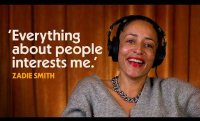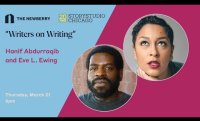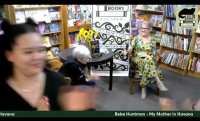Sarah M. Broom and Tracy K. Smith at the New Orleans Book Festival
In this New Orleans Book Festival event hosted at Tulane University, authors Sarah M. Broom and Tracy K. Smith speak about the origins of their writing practices, the cultural impact of their respective literary works, and the power of storytelling to reach the truth in a conversation with Vann R. Newkirk II, senior editor at the Atlantic.








